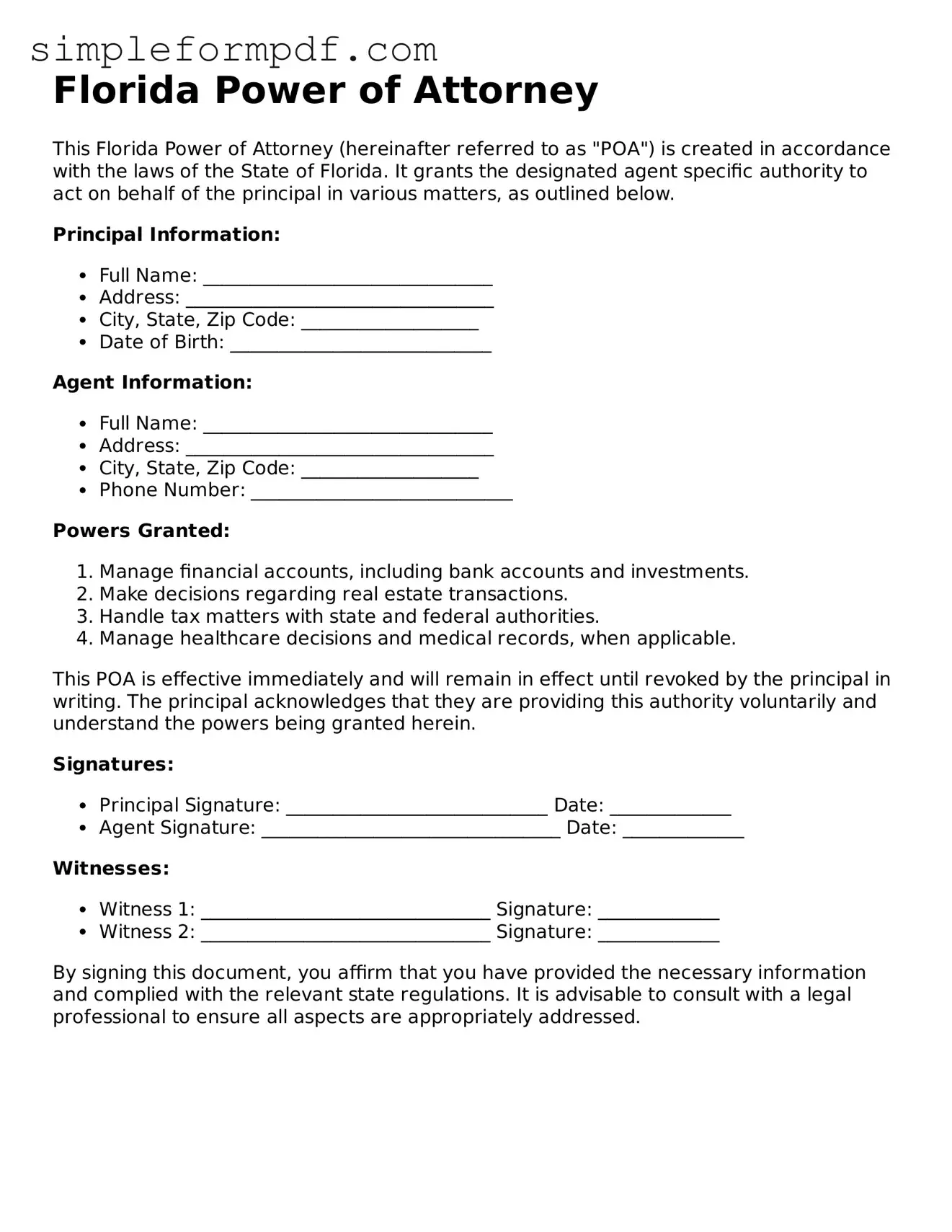Free Power of Attorney Form for the State of Florida
A Florida Power of Attorney form is a legal document that allows one person to grant another the authority to make decisions on their behalf. This form can cover a variety of areas, including financial matters and healthcare choices, ensuring that your preferences are honored when you are unable to make decisions yourself. If you’re ready to take control of your future, fill out the form by clicking the button below.
Launch Editor

Free Power of Attorney Form for the State of Florida
Launch Editor
Need instant form completion?
Finish Power of Attorney online in just a few minutes.
Launch Editor
or
Download PDF
